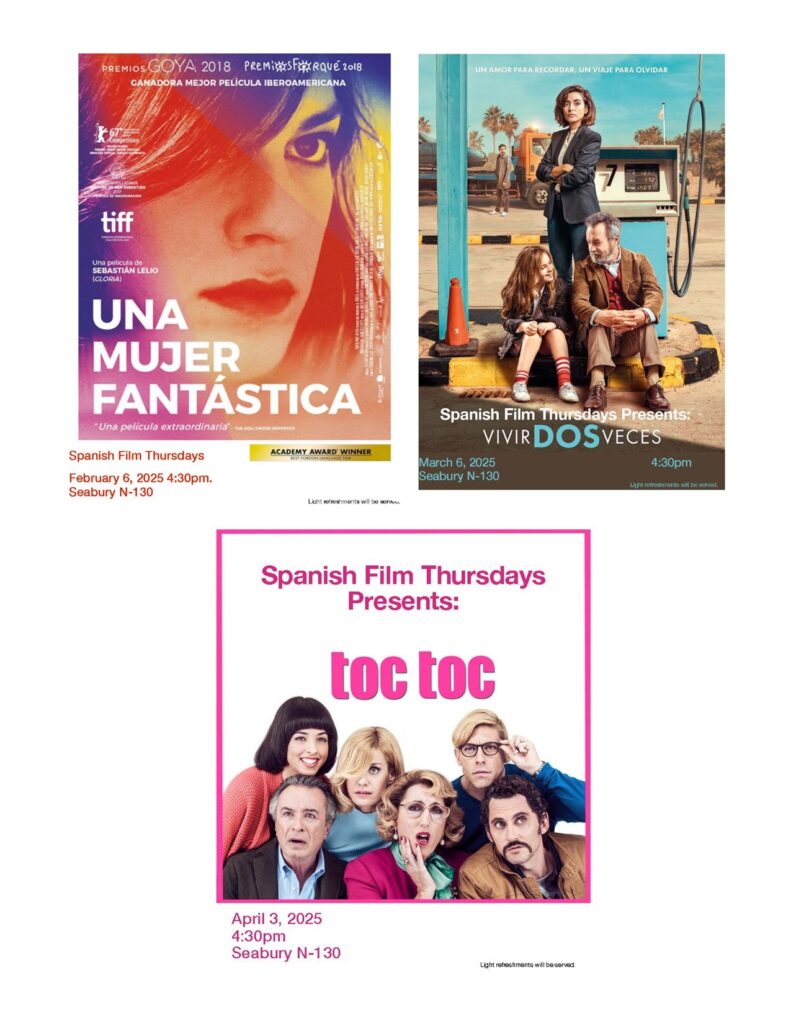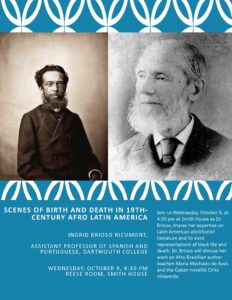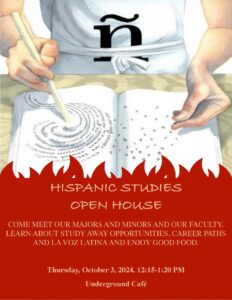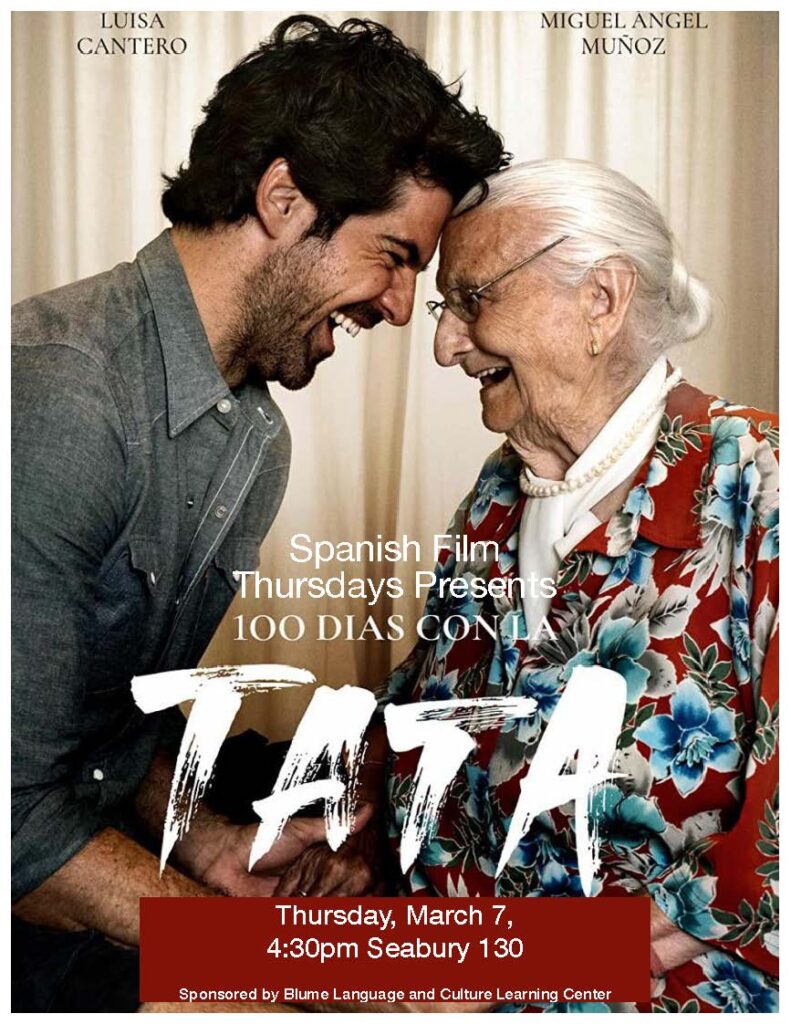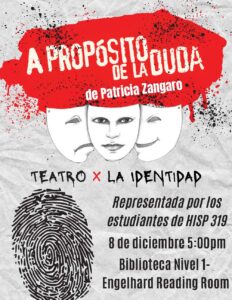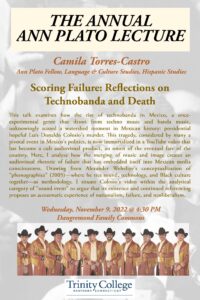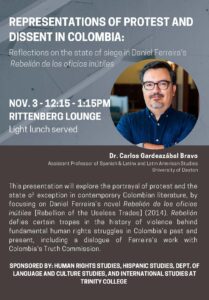Hispanic Studies Events
Spring 2025
PAST EVENTS
Fall 2024
Spring 2024
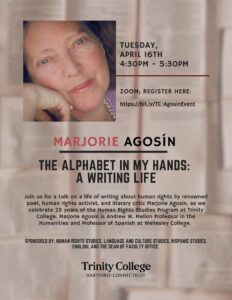 |
The Alphabet in my Hands: A Writing Life by Marjorie AgosínTuesday, April 16, 2024 Marjorie Agosín is known for her poetry that conveys the core of human experiences, especially those impacted by historical and cultural circumstances relevant to human rights. Agosín has been the recipient of multiple accolades and distinctions in recognition of her literary contributions and contributions as a proponent of human rights. Notably, she has been honored with the Jeanette Rankin Award in Human Rights and the United Nations Leadership Award for Human Rights. And was bestowed with the Gabriela Mistral Medal for Lifetime Achievement by the Chilean government.
This event kicks off the 25th anniversary of the Human Rights Program. Thanks to Christina Bleyer (College Librarian, Associate Vice President of Libraries and Digital Learning; Director of Special Collections and Archives, Watkinson Library) there will be a book exhibit in Raether Library (main lobby) starting next week highlighting the collection of books we have of Marjorie Agosín. The exhibit also highlights Chilean artist María Verónica San Martín who has shown her work at Trinity in the past. |
|
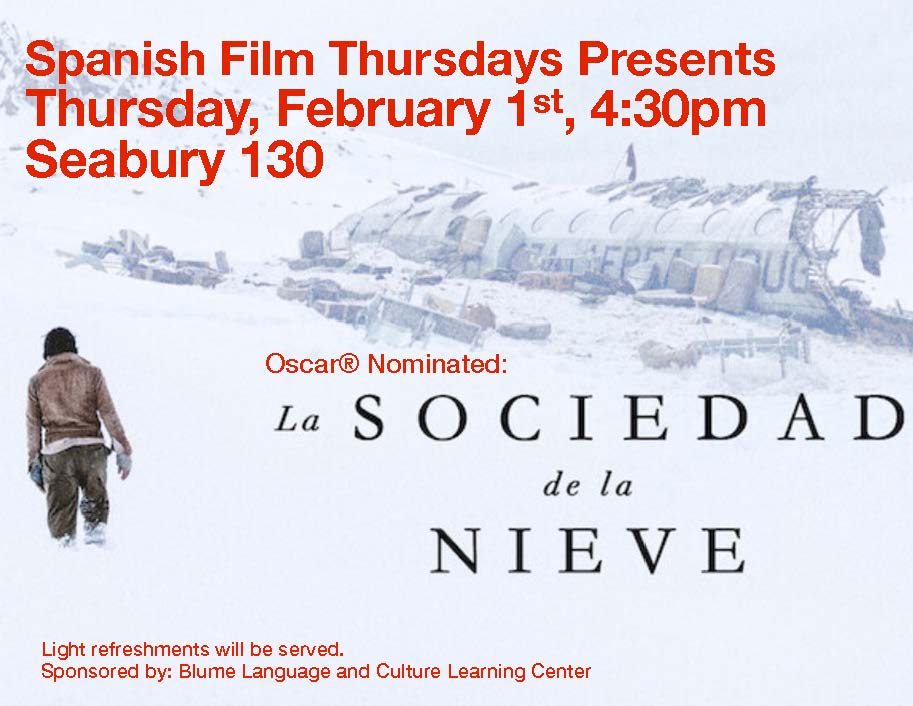
|
Spanish Film Thursdays PresentsLocation: SEABURY 130 February 1, 2024
April 4, 2024 |
Fall 2023
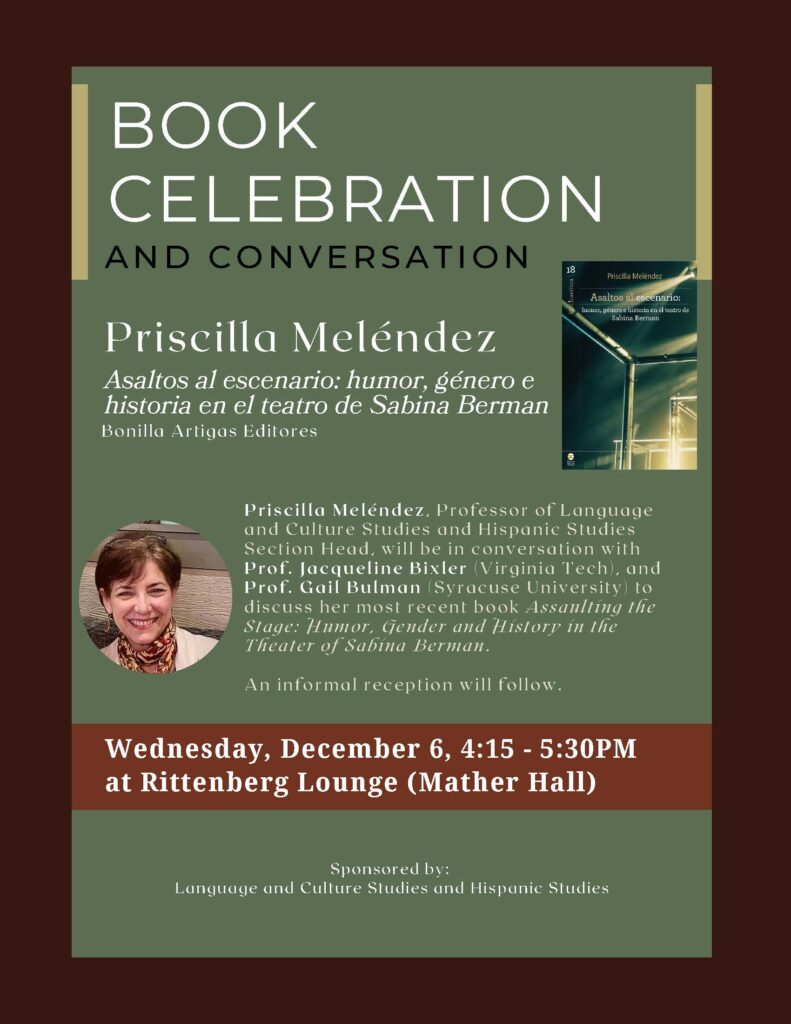 |
Book Celebration and Conversation: Asaltos al escenario: Humor, género e historia en el teatro de Sabina Berman
|
|
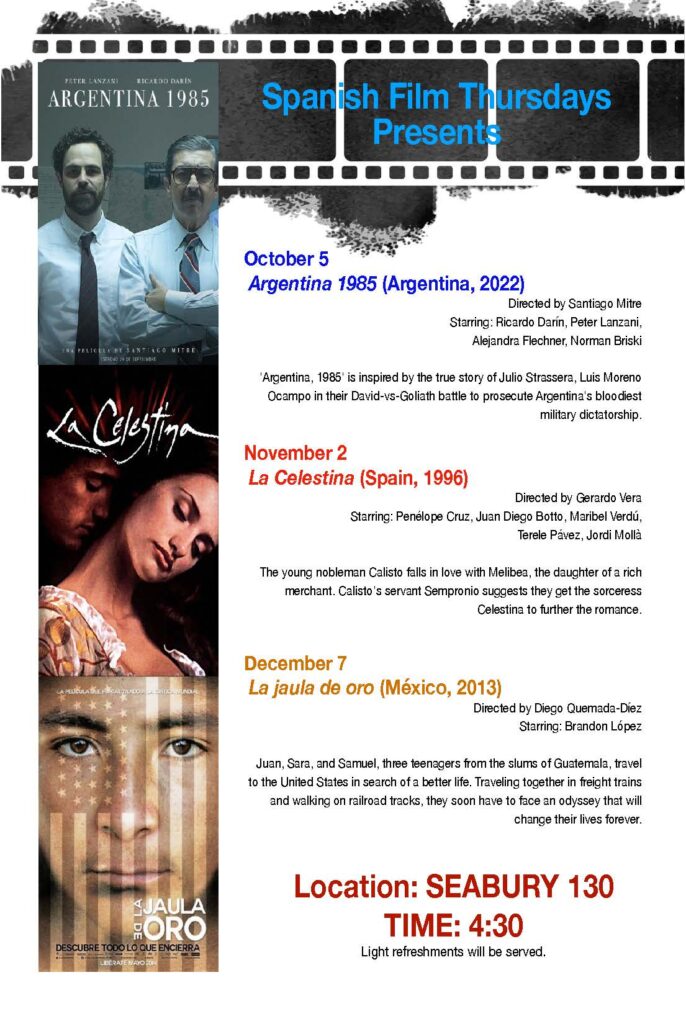 |
Spanish Film Thursdays PresentsLocation: SEABURY 130 October 5 ‘Argentina, 1985’ is inspired by the true story of Julio Strassera, Luis Moreno Ocampo in their David-vs-Goliath battle to prosecute Argentina’s bloodiest military dictatorship. November 2 The young nobleman Calisto falls in love with Melibea, the daughter of a rich merchant. Calisto’s servant Sempronio suggests they get the sorceress Celestina to further the romance. December 7 Juan, Sara, and Samuel, three teenagers from the slums of Guatemala, travel to the United States in search of a better life. Traveling together in freight trains and walking on railroad tracks, they soon have to face an odyssey that will change their lives forever.
|
|
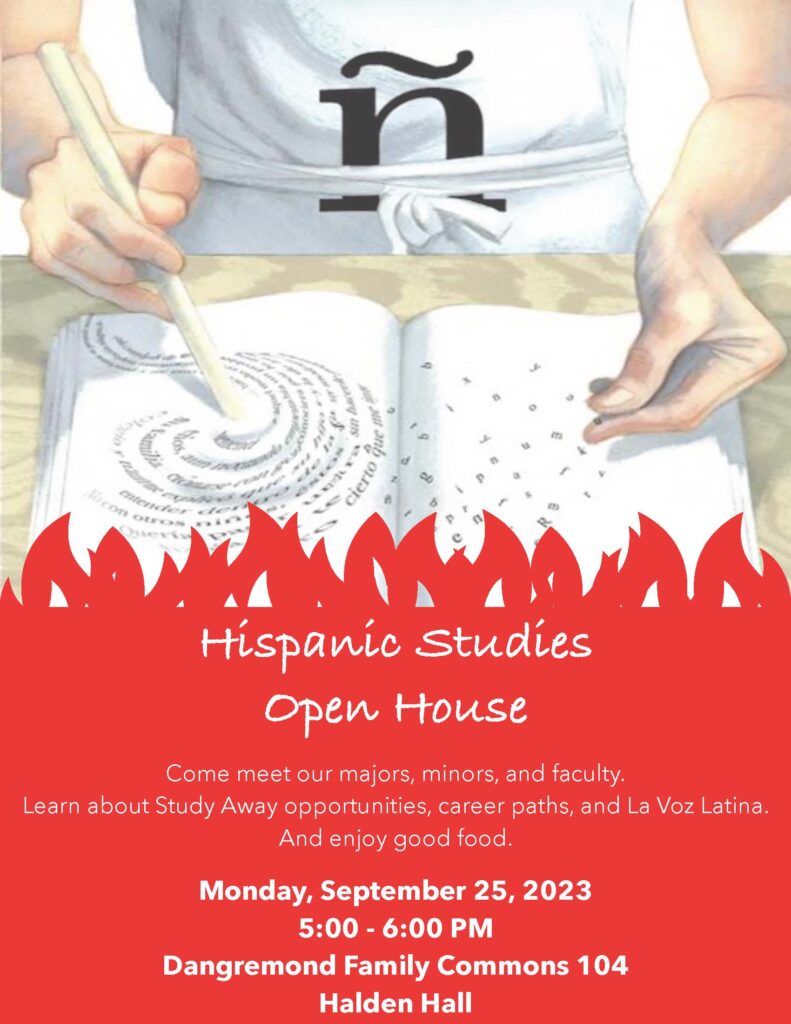 |
Hispanic Studies Open HouseMonday, September 25, 2023
|
|
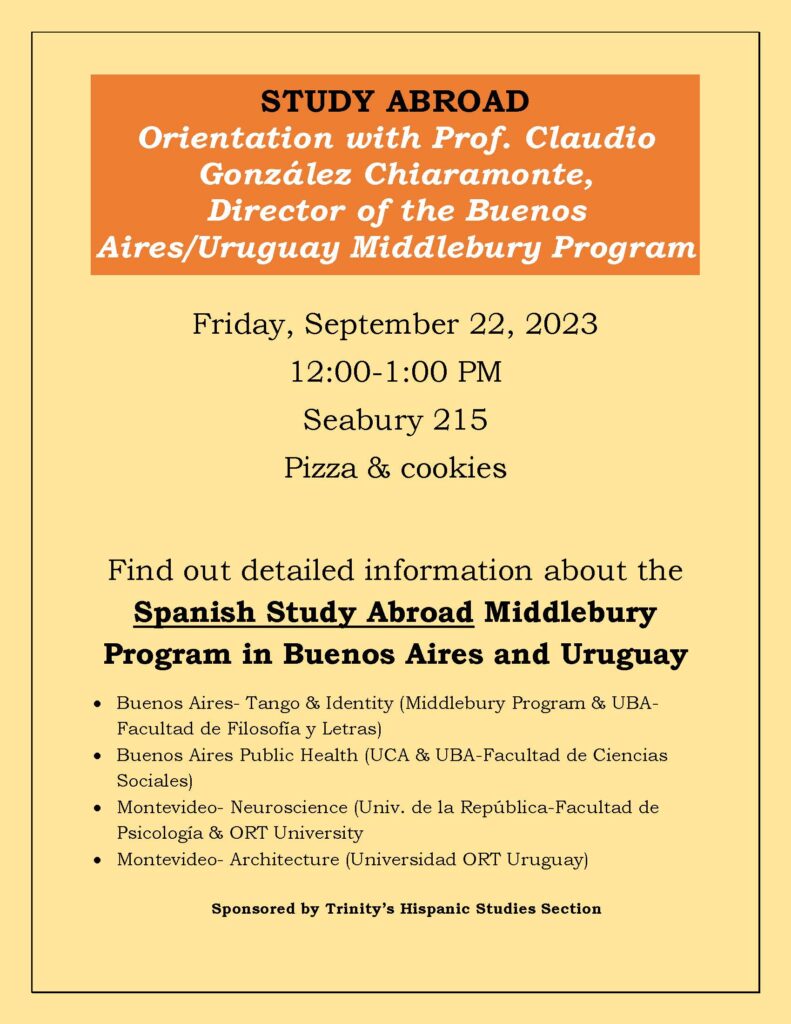 |
|
STUDY ABROAD!
|
Spring 2023
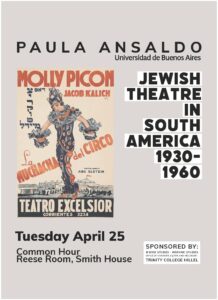 |
Jewish Theatre in South America 1930-1960
|
Latin American Film Series: Jueves de CineOrganized by José Carlos Díaz Zanelli ([email protected]) and Camila Torres-Castro ([email protected]) The Hispanic Division of the Department of Language and Culture Studies offers the Latin American film series Jueves de Cine with the interest of promoting the Spanish language and Latin American culture among Trinity College students and providing them with a varied space for intellectual and cultural formation inherent. The films selected and programmed below offer a diverse, intercultural, and critical perspective of the current Latin American reality. Furthermore, these films are a great opportunity to provide linguistic and cultural exposure to Latin American social diversity. February 2, 2023; 4:30pm; Seabury S-201 March 2, 2023; 4:30pm; Seabury S-201 April 6, 2023; 4:30pm; Seabury S-201 May 4, 2023; 4:30pm; Seabury S-201 |
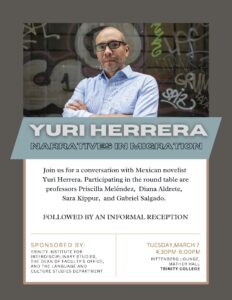 |
Narratives in Migration by Yuri HerreraMarch 7, 2023 Join us for a conversation with Mexican novelist Yuri Herrera. Participating in the round table are professors Priscilla Meléndez, Diana Aldrete, Sara Kippur, and Gabriel Salgado. |
Fall 2022
|
|
“A Proposito de la Duda” by Patrica Zangaro. Performed by the students of HISP-319Thursday, December 8, 2022 @5 pm This play is about the search for truth in Argentina after a turbulent period of political repression, that is, the euphemistically called Process of National Reconstruction, or more clearly, the Dirty War from 1976 until 1983. It is estimated that approximately 30,000 people died or disappeared during those years particularly young activists that were willing to die for their country, and many did. In the process, numerous young women who were pregnant at the time, were kidnapped and their children were born in captivity. Under the auspices of the military government these children were secretly given to families who supported the regime and they grew up not knowing their real identity. The well-known Grandmothers of the Plaza de Mayo –who still gather every Thursday to demand justice for their disappeared children– initiated a campaign to locate and identify their grandchildren through DNA tests. A propósito de la duda portrays this search for justice and truth as Grandmothers confront the false parents, the accomplices who argued that they were just following orders, and the children/now adults who are trying to understand who they are. Play will be performed in Spanish |
|
|
THE ANNUAL ANN PLATO LECTURE
|
|
|
“Representations of Protest and Dissent in Colombia: Reflections on the state of siege in Daniel Ferreira’s Rebelión de los oficios inútiles” by Carlos Gardeazábal BravoThursday, November 3, 2022 @Common Hour This presentation will explore the portrayal of protest and the state of exception in contemporary Colombian literature. Carlos will focus on Daniel Ferreira’s novel Rebelión de los oficios inútiles [Rebellion of the Useless Trades] (2014), showing how it breaks with the established reading pacts of human rights narratives and their sentimental grammars through a historical plot centered on land tenure, the state of exception, and its connections with the right to protest and freedom of expression. This exploration underscores how Rebelión defies certain tropes in the history of violence behind fundamental human rights struggles in Colombia’s past and present, including a dialogue of Ferreira’s work with Colombia’s Truth Commission. The novel points at the Frente Nacional and the Guerra de los Mil Días as sources for vestiges of the current debates about historical memory in Colombia. Carlos will explain how Ferreira’s novel resists the sentimental commercialization of violence and memory in the Colombian (and Latin American) cultural market while representing dissensual subjects outside the customary figures of the victim and the hero. (Co-Sponsored by Human Rights, Hispanic Studies, Dept of Language and Culture Studies & International Studies) |
